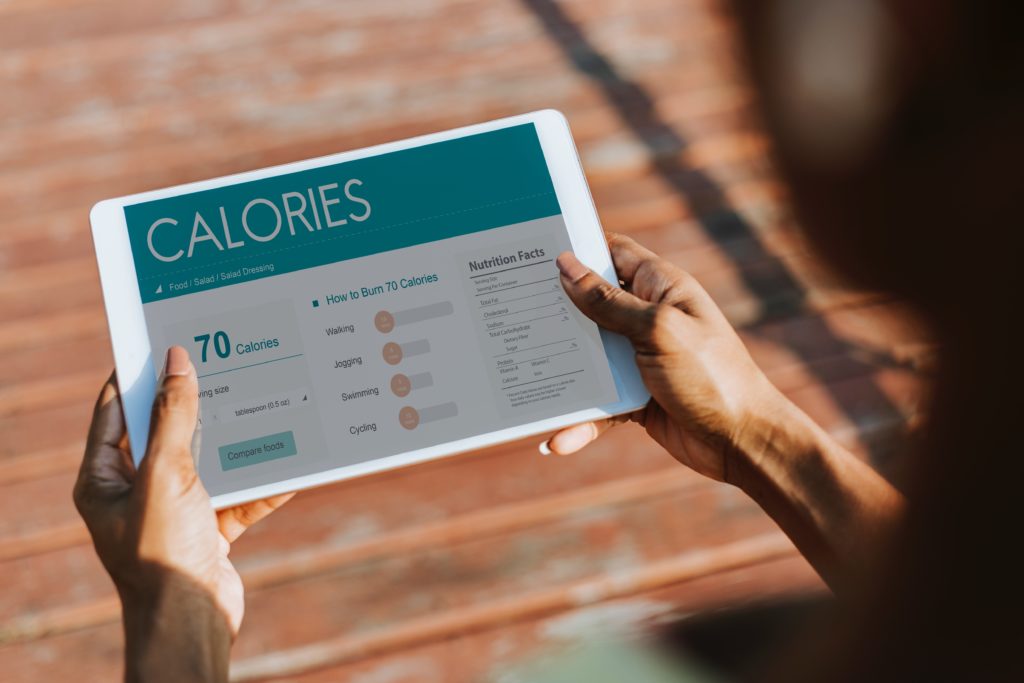At the heart of an effective weight-control strategy is the vital fact that weight can only be lost when the calories being burnt are greater than the number of calories consumed. Simple enough, but this means you need to know the caloric value of everything that goes into your mouth. Here’s a simple guide to determining these figures.
Calories in food are derived from protein, fats and carbohydrates. Alcohol also provides calories. Vitamins, minerals and water contain no calories.
Calorie values per gram
- Fat/Oil ~ 9 Calories
- Carbohydrate ~ 4 Calories
- Protein ~ 4 Calories
- Alcohol ~ 7 Calories
Note that fats have more than double the calories contained in protein and carbohydrates. The higher the fat content of food, the more calories it contains.
Sample calculation: Quarter Pounder® with cheese has 534 calories derived from:
- 30g Fat (x 9 cals/gram) = 270 cals
- 38g Carbohydrates (x 4 cals/gram) = 152 cals
- 28g Protein (x 4 cals/gram) = 112 cals
- Total Calories = 534 calories
Calorie intake for weight loss
Begin by adopting a calorie-controlled diet that allows a moderate weight loss of 0.5-1 kg per week. Weight loss is usually much more significant during the first few weeks of your weight-loss journey or diet, due to extra fluid losses.
If you’re aiming to reduce your calorie intake to support weight loss, be sure to do so slowly, monitoring for feelings of fatigue, weakness, low energy and other symptoms. Don’t decrease your intake by more than 300-500 calories per day. Food is fuel, so you need to ensure you’re eating enough – eating too little food can be just as detrimental to weight loss as eating too much!
Note: It’s better to increase your exercise rather than reduce calorie intake from food too drastically.

